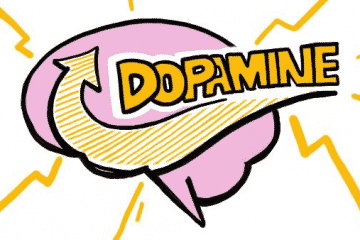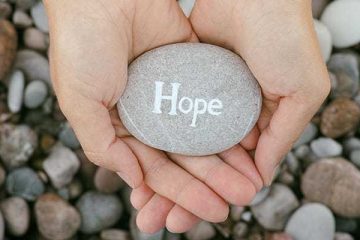What Does Helping Others Really Mean
Probably the first thing that comes to mind when you think about it is financial aid. Somehow many people are convinced that one should be extremely rich to provide others with help. But the whole thing isn’t about huge donations to charities or adopting children from developing countries.
There are many things you can use to make someone’s life a little (or a lot) easier except money. Your time, ideas, skills, attention, care, and even something as slight as a mere smile will make a difference to the world around you. Small and simple acts of kindness mean as much, if not more, than loud and spectacular ones.

What Are The Ways of Helping Others
Now that you know of the significance of any help, you may be struggling to come up with particular ideas. Don’t worry! There are more ways of helping others than there are stars in the night sky and most of them are seemingly inconsequential acts of thoughtfulness. Here are some small steps which will be useful if you are determined to take action right now:
- donate unused furniture and clothes you never wear – you will deal with the clutter, organize your space, and find a good use for things you don’t need anymore without just throwing them away;
- call your friends, parents, and loved ones to ask how they are doing;
- help an old lady across the street;
- cook dinner and bring it to someone who has been ill or experienced a tough time;
- do some volunteering – time spent on community service will become a great contribution to the common welfare;
- hold an open door or an elevator;
- start cleaning up a beach or a park – people will see it and follow your example;
- share your knowledge – for example, you can give a few English lessons for free or show how to knit;
- give a ride for someone in a hurry;
- participate in a local blood donation campaign;
- express your positive emotions and gratitude to people surrounding you;
- tell someone how much you appreciate them or send a text message;
- check in on an elderly person and help them to get something fixed or suggest making an appointment with a doctor if there’s such a need;
- and last but not the least, hug someone just to brighten their day.
Remember – it costs 0 cents to be a nice person, so don’t take too long and find the strength to change the future within yourself!
The Importance of Helping Others
All of us want to get ahead in life and lead it to its full potential. It’s impossible to do so if we underestimate the importance of helping others. The implications of your concern are likely to be far-reaching in the minds and memories of those you interact with, having its own unique set of rewards that can’t be purchased at any cost.
There can be no doubt that you will gain a nice reputation and stand out from the crowd for demonstrating your care. Every time you communicate with other people being observant and proactive in your help-focused objective, numerous opportunities will be presented, even if you perform plain acts of courtesy. Just the offer of assistance will open up many possibilities illuminating the doorway of friendship and boosting your self-confidence.
Think of life as a mirror: what you reflect and give out to others you will also get back, often multiplied many times over.
To contemplate this topic more profoundly, you can even write the importance of helping others essay. This article on the moral choice will help you present compelling arguments.
Some Health Benefits Of Being Helpful
We have covered the psychological side of the advantages of helping others, now let’s talk about the physical aspect. Among the most obvious profits are:
- Stress Decrease. Lower anxiety levels and keep yourself active by offering to do yardwork for those who are not able to do it by themselves.
- Longer Life. Donating blood reduces the risk of heart attack and stroke, and has been linked to an increased lifespan. You may also bring a trash bag and pick up litter next time you go for a walk to create a cleaner environment and prevent cardiovascular diseases.
- Improved Mental Health. Delivering groceries or medications for someone in need will lessen loneliness and minimize exposure to depression, thus making you feel happier and more satisfied.
How to Soothe Someone Who Feels Sad
Sometimes it is hard to understand when a person in front of you looks heartbroken or troubled. Doing good deeds is one thing. But supporting people when they are down in the dumps in the right way is another. You should be prepared to do your best here because often we lack all the skills to deliver on our positive intentions. It’s crucial to recognize an odd, largely unmentioned phenomenon: how varied our notions of help can be.
We might be types who, when we divulge our agonies, our priority may just be to hear that everything will eventually be okay, even with a little bit of exaggeration. For us, love is hope.
Or, alternatively, it’s hope that may be irritating. What calms us down is a quiet walk around the prospect of catastrophe. We long for someone to explore the grimmest possibilities and be honest enough to see the dangers and to worry about them as much as we do.
Differently again, when we’re sad or in difficulties, need first and foremost to speak. All that matters is someone sitting with us, at length, and listen. We want them to signal their engagement with their eyes, to register our anger, to observe our disappointment, and to prompt us with a small supportive sound. Yet what we absolutely don’t want: answers, solutions, or analyses, because the real problem we need assistance with isn’t so much the specific issue we are mentioning. It’s the overarching sense that most people we encounter can’t really be bothered with our problems.
Then again, at another end of the spectrum, love might not feel real unless it’s accompanied by precise and concrete actions. We might want to hear a flow of ideas as to what we should do next, whom we might call, and how we can get answers.
A cuddle can sound to some like a petty response to bad news, but for us, it can be the most reliable evidence of heartfelt love. To help our minds, we need someone first to reassure our bodies while we close our eyes in pain and surrender to their firm embrace.
Recognizing that there are different styles of help, at least alerts us to the severe risks of misunderstanding. Instead of getting annoyed at inept and sometimes wildly misdirected efforts, we can grasp the basic truth that these are actually the attempts to be nice.
Altruism – Is It a Self-Denial or a Part of a Human Nature
Altruism is another way to say helping others and means acting in the best interest of people rather than in one’s own self-interest. Some believe that altruism constitutes the essence of morality. A person who helps others selflessly and has a passion for helping others may be called an altruist.

Although we often act egotistically, we also seem to be wired to cooperate with others. For example, studies show that when people look for mates, they tend to look for kindness more than any other quality. People’s moral judgments are often driven by emotion, and empathy for others seems to encourage altruism, which builds social connections as well and stimulates us to establish strong relationships.
But the question about nature of altruism has been stumping scientists for years.
Charles Darwin studied beehives and realized that natural selection might favor altruism within related groups, since bees were helping their blood relatives, especially the queen, but still considered altruism to be a flaw that could ruin his theory of natural selection – it couldn’t possibly favor a behavior that made us less likely to survive.
In 1964, a hundred years later after that, a British scientist named William Hamilton figured that the genes responsible for altruistic behavior could evolve if its benefit exceeded whatever cost it had for the individual because it helped their relatives enough to make it worthwhile.
However, this idea do not explain why some animals help others that they’re not even related to.
Humans, for example, are deeply social animals, also exceptionally altruistic. A lot of scientists think that humans evolved our smart brains in response to the overwhelming profits of engaging in selfless behavior.
But if you delve into it you can see a self-serving basement behind that altruism evolution – we help each other because we expect the same in return.
Hamilton’s theory does not clarify such twist. But despite the lack of the scientific grounds, if you can cooperate with others and resist the urge to horde resources, knowing you’ll be rewarded later, you’ll be acting a lot like bees.
Another emotion, called “elevation,” appears to inspire altruistic behavior, too. It is a word for feeling good about helping others, and we also experience it when we see another person acting virtuously.
So, while altruism leads us to do what’s best for others, it also makes us feel good in the process and can claim to be a part of human nature, yet research has yet to confirm it.
For more information on this topic, click the link and watch the video down below: https://www.youtube.com/watch?v=Diuv3XZQXyc
Famous Philanthropists
There is also another kind of people addicted to helping others – philanthropists. The word “philanthropy” comes from the Greek “filo” which means friend, and if you translate it directly, it is “love of mankind” or “caring about your community”.
We will tell you about some outstanding individuals who dedicated themselves to philanthropy and who serve as great examples of helping others. They can also inspire you to write a role model essay. You are free to use this article with plenty of precious thoughts!
Michael Bloomberg
Two months after the 9/11 attacks, this man was elected mayor of New York City and served for the next eleven years. He’s become well known for his charity group “Bloomberg Philanthropies” which centers on five key areas: public health, the arts, government innovation, environment, and education, essentially the foundation for a progressive America.
Andrew Carnegie
Upon moving to the United States from his native Scotland in 1848 an adolescent Andrew Carnegie nabbed his first job and realized the potential of his new land. Along came the Industrial Revolution, and he is one of the men who truly shaped the country. Carnegie amassed a fortune that he continuously pumped back into the economy. Andrew set the standard for billionaire philanthropists as he donated approximately 90 percent of his earnings to a new America.
Bill and Melinda Gates
Bill Gates was a co-founder of Microsoft and he’s long been on record about his admiration for Andrew Carnegie along with David Rockefeller. With the American forefathers serving as his model for philanthropy, Bill and his wife Melinda formed the “Bill and Melinda Gates Foundation” in 2000 which is undoubtedly the 21st century model for all major philanthropists. They have graciously donated nearly thirty billion dollars to charity as of 2013. Moreover, in a new digital world Bill and Melinda Gates are able to effectively organize the world’s most influential moguls to promote a better way of life across the globe.
Quotes About Helping Others
Let’s sum it all up with touching quotes to give thought to:
“Great opportunities to help others seldom come, but small ones surround us every day.”
– Sally Koch
“He who serves the most, reaps the most.”
– Jim Rohn
“Life engenders life. Energy creates energy. It is by spending oneself that one becomes rich.”
– Sarah Bernhardt
“The meaning of life is to find your gift. The purpose of life is to give it away.”
– Pablo Picasso
“The best way to not feel hopeless is to get up and do something. Don’t wait for good things to happen to you. If you go out and make some good things happen, you will fill the world with hope, you will fill yourself with hope.”
― Barack Obama
FAQ
How to start helping others?
Begin with small things and get rid of the prejudice that helping others is the privilege of rich people. Use the abovementioned tips to start changing the world for the better!
What is the word for helping others?
Altruism is another helping others definition that implies selfless and devoted concern for others’ well-being. It is the opposite of egocentrism. The most famous altruists and philanthropists are Mother Teresa, Mark Zuckerberg, Paul Allen, Bill Gates, George Soros, etc.
Why is helping others important?
By provinding someone with help we build a happier community with strong connections, as well as improving other people’s and our own well-being and health.






In fact, a very interesting way to help yourself is to help others. Indeed, if we help others, the world begins to open up for us in a new way, something unusual and new appears in life. By helping others, we get out of our bubble, leave our comfort zone, which forces us to grow beyond ourselves. This is how a person demonstrates his growth. For me, all your advice still works! Thank you for this!